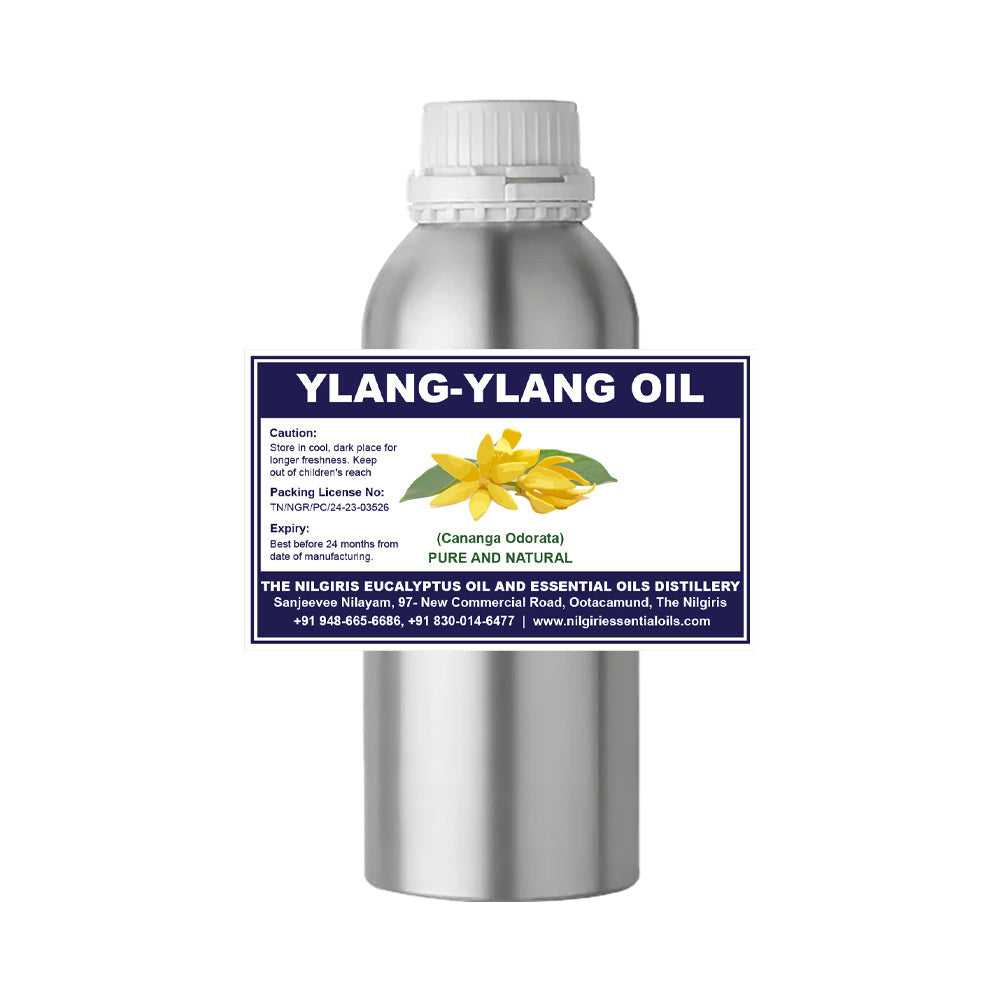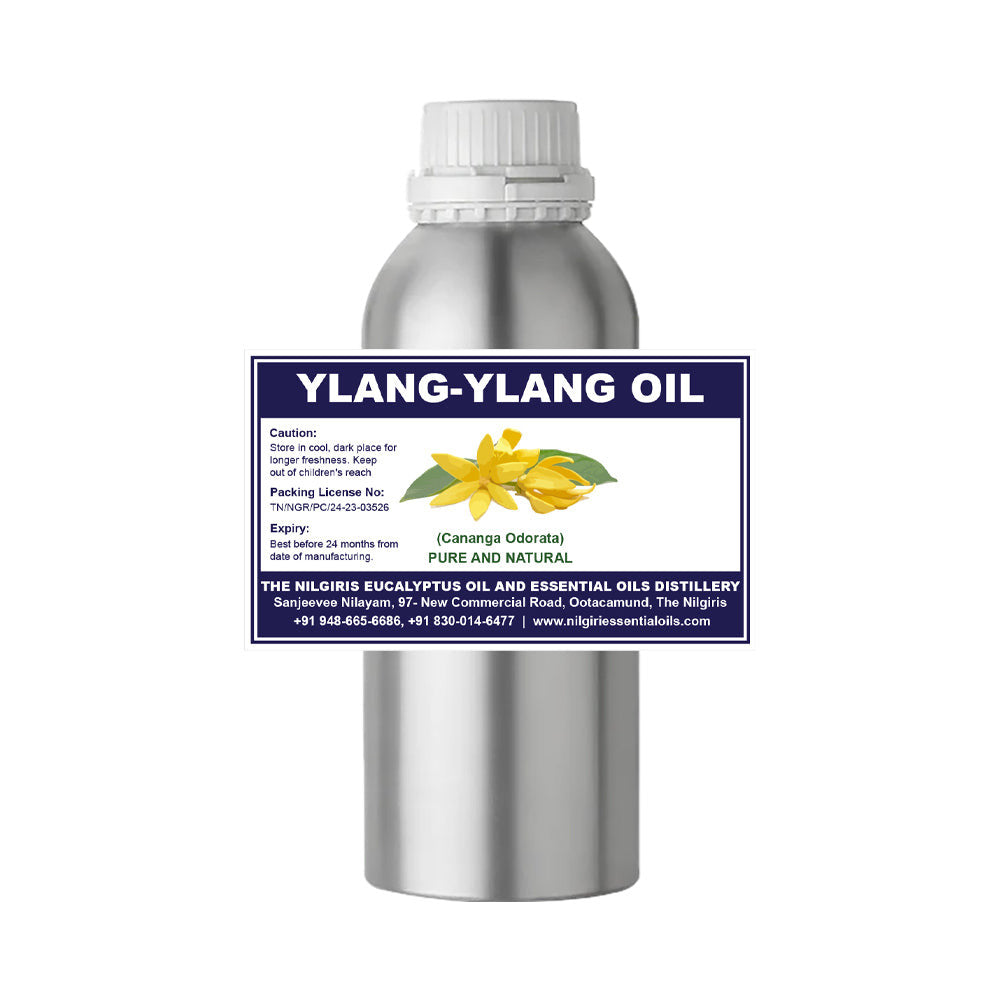Description
Ylang-ylang oil is extracted from the flowers of the Cananga odorata tree, native to tropical regions of Southeast Asia, particularly Indonesia and the Philippines. The oil is obtained through steam distillation of the freshly picked flowers, resulting in a pale yellow to golden oil with a sweet, floral, and exotic aroma. Ylang-ylang oil is highly prized in perfumery for its rich and complex fragrance, often described as floral, fruity, and slightly spicy.
Benefits:
-
Mood Enhancement: Ylang-ylang oil is renowned for its uplifting and mood-enhancing properties. Its sweet and exotic aroma has a calming effect on the mind and body, helping to reduce stress, anxiety, and tension. In aromatherapy, ylang-ylang oil is used to promote relaxation, uplift the spirits, and enhance overall well-being.
-
Aphrodisiac: Ylang-ylang oil has long been associated with romance and sensuality due to its intoxicating fragrance. It is believed to have aphrodisiac properties that can help stimulate desire, enhance intimacy, and create a romantic atmosphere. Ylang-ylang oil is often used in massage oils, bath blends, and perfumes to set the mood for intimate encounters.
-
Skin Care: Ylang-ylang oil has antiseptic, antibacterial, and anti-inflammatory properties that make it beneficial for skin health. It can help cleanse and purify the skin, regulate oil production, and soothe irritation and inflammation. Ylang-ylang oil is often used in skincare products such as cleansers, toners, and moisturizers to promote clear, healthy-looking skin.
-
Hair Care: Ylang-ylang oil is beneficial for maintaining healthy hair and scalp. It helps balance sebum production, improve blood circulation to the scalp, and stimulate hair growth. Ylang-ylang oil can be added to shampoo, conditioner, or hair masks to nourish the hair follicles, strengthen the hair shaft, and add shine and luster to the hair.
-
Relaxation and Sleep: The sedative properties of ylang-ylang oil make it effective for promoting relaxation and improving sleep quality. Its calming aroma can help reduce nervous tension, promote deep relaxation, and induce a sense of tranquility before bedtime. Diffusing ylang-ylang oil in the bedroom or adding a few drops to a warm bath can help create a peaceful and restful environment conducive to sleep.
How to Use:
-
Aromatherapy: Add a few drops of ylang-ylang oil to an essential oil diffuser or aroma lamp and diffuse it in the air to enjoy its aromatic benefits. Inhale deeply to experience its calming and uplifting effects on the mind and body. Ylang-ylang oil blends well with other floral oils, citrus oils, and woody oils for a customized aroma blend.
-
Massage Oil: Dilute ylang-ylang oil with a carrier oil such as coconut oil, jojoba oil, or sweet almond oil and use it for a relaxing and aromatic massage. Massage the oil onto the skin in gentle, circular motions to promote relaxation, relieve tension, and soothe sore muscles. Ylang-ylang oil can also be added to bath water for a luxurious and indulgent bath experience.
-
Skincare: Incorporate ylang-ylang oil into your skincare routine by adding a few drops to your favorite skincare products or DIY formulations. It can be used in cleansers, toners, moisturizers, serums, and face masks to promote clear, radiant, and youthful-looking skin. Ylang-ylang oil is suitable for all skin types and can help balance oil production and soothe sensitive skin.
-
Hair Care: Mix a few drops of ylang-ylang oil with your favorite shampoo, conditioner, or hair mask to nourish and condition the hair and scalp. Massage the mixture into the scalp and hair, leave it on for a few minutes, then rinse thoroughly. Ylang-ylang oil can help improve hair texture, strengthen the hair follicles, and add shine and vitality to the hair.
Always perform a patch test before using any essential oils or carrier oils on your skin to check for any allergic reactions. Additionally, pregnant or nursing women and those with certain medical conditions should consult a healthcare professional before using essential oils and carrier oils.
Bottle Size & Packing

30 ml
Glass

30 ml
Aluminium

150 ml to 1 Litre
Aluminium

5 Litres / Kgs
HDPE Can

35 Litres / Kgs
HDPE Can

200 Litres / 180 Kgs
GI Barrel


